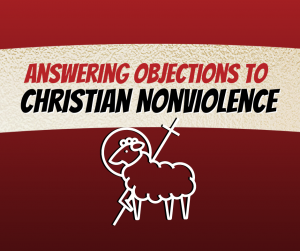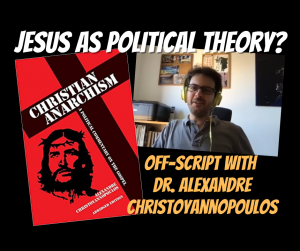One of the few positive things about the endless stream of hot takes, Twitter wars, and podcast rants that surround us today, is that truly thoughtful engagement with Scripture in public forums stands out. When followers of Jesus dig into the Word for guidance, rather than wielding it as a weapon in the latest internet squabble, we should all notice.
That’s why I appreciated Preston Sprinkle’s recent two-part series on the Christian view of marriage. While Dr. Sprinkle is not above hot takes and rambling podcasts, this particular presentation demonstrates the power of grace coupled with intellectual rigor in wrestling through “hot button issues” and God’s will.
How does he do this?
First, Dr. Sprinkle shows his work. He has a doctorate, a ministry platform, and popular podcast, but he doesn’t appeal to his authority to make his argument. Instead, he does what each of us could do: He acknowledges his biases, defines terms, and then turns to Scripture. Rather than dazzling us with complex arguments from “the original Greek” or claiming special knowledge of Biblical culture, he mostly hews to Scripture, inviting us to do the same.
When experts make claims without showing their work, they end up “preaching to the choir.” Those who agree with them – regardless of the validity of the claim – will have “proof” in their arsenal, while those who have doubts are left without a way to engage with the expert further. Thus, much debate becomes a war of expert opinion. In his videos, Sprinkle avoids this trap by allowing each of us to see his process and either agree with or push back against his reasoning.
But Preston Sprinkle does more than just engage with Scripture. He also engages honestly with “the other side.” It is not uncommon for polemicists to pay lip service to the idea of listening to both sides, but it is rarely more than an exercise in constructing straw man.
This is not what Sprinkle does. While I can’t judge whether he is fully accurate in his representation of those he disagrees with, he takes their arguments seriously. In fact, he acknowledges strengths of each argument, and places where he agrees with them. Rather than posturing for rhetorical points, he seems to genuinely care about both sides of the issues.
Along with showing his work and engaging with the other side, I also appreciate how Preston doesn’t try to answer every question in his talks. He doesn’t address divorce and remarriage or courtship or preferred pronouns in this series. I think that is a strength.
Far too often, careful, clear teaching is sacrificed in favor of attempts to be exhaustive – to signal to one’s audience that every single aspect of every possible issue has been considered and definitively answered. Sprinkle narrowly defines his focus and refuses to answer questions beyond it. In doing this, his presentation is much more effective, and communicates respect to his audience. His silence on some topics challenges us to continue the work, suggesting that we may have better answers for our particular contexts than he can give.
Finally, I was thankful that Sprinkle did not confuse central Gospel truth with tangential extrapolations of that truth. For example, he makes it clear that the historically Christian view of marriage is between one man and one woman. For many, it would seem obvious that an implication of this truth is that we should not attend same-sex marriages. Others would insist that making a cake for a gay wedding would also be unbiblical. But Preston doesn’t get caught up in hypotheticals. He doesn’t assume that every related question can be answered with equal degree of Biblical certainty. He speaks clearly where Scripture speaks clearly, but doesn’t demand answers from the text that are not there.
Now, it is perfectly appropriate to explore implications of Bible principles that go beyond what the authors originally intended. This is part of discipleship and putting action to our faith. But we dare not conflate particular applications of Scripture with the clarity of Scripture itself. Dr. Sprinkle avoids that trap.
* * *
The videos provide a winsome, easy-to-understand presentation of the historically Christian view of marriage. That is good, and necessary for our world today. But even if that issue is not of special interest, I encourage you to listen for the equally-necessary example of clear, Biblical thinking that avoids hubris, but humbly engages with differing perspectives.
Does every engagement – every Tweet, Facebook post, in-person gabfest – need this kind of gentle rigor? If you listen to Preston’s Theology in the Raw podcast regularly, you know he doesn’t bring this level of discourse to every conversation. But more of it certainly wouldn’t hurt. As a podcast host myself, I sometimes find myself pontificating on topics that I have scarcely given thought to. This is dangerous – if not for my audience, then certainly for my reputation. How much better is it to think, study, and pray deeply about a narrower topic, than to sound off about the latest issue with only limited understanding?
Or, as James put it a couple thousand years ago: “Let everyone be swift to hear, slow to speak, slow to wrath.”
You can find Preston’s presentations on his website (Part One, and Part Two).



